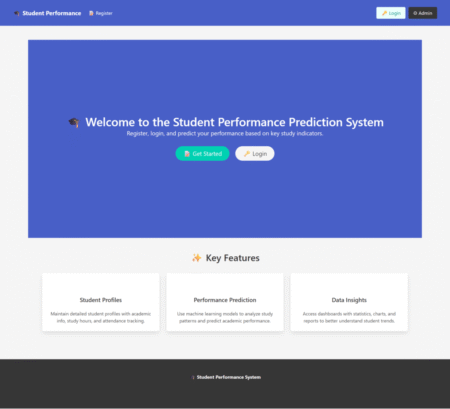
AI development for enterprises is rapidly moving from experimentation to execution, becoming the foundation of modern digital transformation. From automating complex workflows to enabling real-time decision-making, enterprises are leveraging AI to drive efficiency, cut operational costs, and stay ahead in competitive markets.
According to McKinsey’s 2024 Global AI Report, over 55% of organizations have adopted AI in at least one business unit, and enterprise adoption is accelerating. But to truly scale AI across the organization, it takes more than advanced tools. It requires a clear strategy, strong governance, and solutions tailored to your industry’s unique challenges.
What Are AI Services in an Enterprise Context?
AI services refer to custom-designed solutions built to help enterprises automate decision-making, analyze large data sets, and improve customer experiences using artificial intelligence. This includes everything from machine learning (ML) models and natural language processing (NLP) to computer vision, recommendation engines, and GenAI solutions.
Why AI Is Now Essential for Enterprise Growth
Adopting AI isn’t just about following tech trends. It’s about solving real business challenges:
- Automating manual and repetitive tasks
- Unlocking deep data insights
- Enhancing decision-making
- Reducing time-to-market for new products
- Improving personalization at scale
Companies that leverage enterprise AI effectively report a 35–45% operational improvement, especially in finance, healthcare, manufacturing, and logistics.
AI Development Strategy: Building an Enterprise-Ready Framework
Implementing AI services across departments needs a phased, goal-driven strategy. Here’s the recommended blueprint:
1. Define Business Objectives
Start by identifying key areas where AI will drive measurable impact customer churn, fraud detection, demand forecasting, etc.
2. Data Readiness Audit
Ensure you have structured, labeled, and clean datasets. Data maturity is critical for successful AI model training and inference.
3. Model Selection & Customization
Choose between pre-trained models, open-source frameworks like TensorFlow or PyTorch, or custom-built LLMs depending on your goals. With the right AI Software Development Services, you can tailor these models to fit your enterprise use cases, ensuring they deliver both performance and strategic value.
4. Integration & Infrastructure Planning
AI doesn’t work in silos. Plan for integration into CRMs, ERPs, or data lakes using APIs, SDKs, and secure cloud/hybrid infrastructure.
5. MLOps & Governance
Set up monitoring, version control, and retraining pipelines. Use MLOps for continuous delivery and performance tuning.
Read more: Understanding AI with Python for Smarter Business Solutions
Cost of AI Development for Enterprises
The cost of AI development depends on project scope, complexity, and infrastructure needs. Here’s a general pricing snapshot:
| AI Service Scope | Estimated Cost Range (USD) | Key Factors Included |
|---|---|---|
| Proof of Concept (PoC) | $10,000 – $25,000 | Basic model, small dataset, limited use |
| Full Custom AI Solution | $50,000 – $150,000+ | End-to-end dev, ML/LLM, API integration |
| AI as a Service (Managed) | $5,000 – $15,000/month | Hosting, monitoring, and support |
| GenAI Chatbot / Assistant | $20,000 – $60,000 | NLP, vector DB, RAG, fine-tuning |
| Enterprise AI Platform | $150,000+ | Multi-model, role-based access, dashboards |
Note: Costs also vary by industry regulations, deployment model (cloud vs. on-prem), and ongoing training needs.
Real-World AI Use Cases in Enterprises
- Retail: Predicting inventory demand, dynamic pricing, and visual search
- Healthcare: Diagnostic assistance, patient triage bots, drug discovery
- Finance: Loan risk analysis, fraud detection, algorithmic trading
- Manufacturing: Predictive maintenance, defect detection, robot optimization
- Logistics: Route planning, demand forecasting, autonomous delivery
Challenges to Address in AI Adoption
While the rewards are high, enterprises must navigate these common challenges:
- Data privacy and compliance (especially in healthcare/finance)
- Change management and workforce upskilling
- Model bias and ethical governance
- Cost of infrastructure and cloud computing
- Lack of in-house AI talent
Future Trends in Enterprise AI Services
Looking ahead, we expect growth in:
- Agentic AI systems that act autonomously with goals
- Multi-modal AI combining image, text, and speech
- Federated Learning for privacy-preserving model training
- AI + IoT for real-time analytics at the edge
- LLM integrations into enterprise SaaS products
How to Get Started with AI Development
If you’re planning AI adoption in your enterprise, here’s a smart approach:
- Start with a use-case workshop to identify priorities
- Choose a consulting partner with real AI implementation experience
- Build a pilot, measure outcomes, then scale
- Invest in AI governance, compliance, and ethics early
- Upskill internal teams to co-own success with your tech partner
See full guide: How to Shortlist the Best Python Development Company
Why Inexture for AI Services?
We bring deep expertise in building enterprise-ready AI solutions from GenAI assistants to predictive models and AI automation platforms.
We help you:
- Translate business needs into working AI models
- Customize models using LLMs, NLP, CV, and DL techniques
- Deploy securely with scalable infrastructure (AWS, Azure, GCP)
- Set up long-term AI operations with governance and retraining pipelines
Final Thoughts
AI services are no longer a “nice to have”; they are essential for any enterprise looking to innovate, stay competitive, and scale intelligently. The key lies in starting small, thinking strategically, and working with a trusted AI development partner. At Inexture Solutions, we empower enterprises to build impactful, scalable AI ecosystems that truly deliver measurable results.
The post AI Development for Enterprises: Cost, Strategy, and Success Frameworks appeared first on Inexture.
Source: Read MoreÂ


